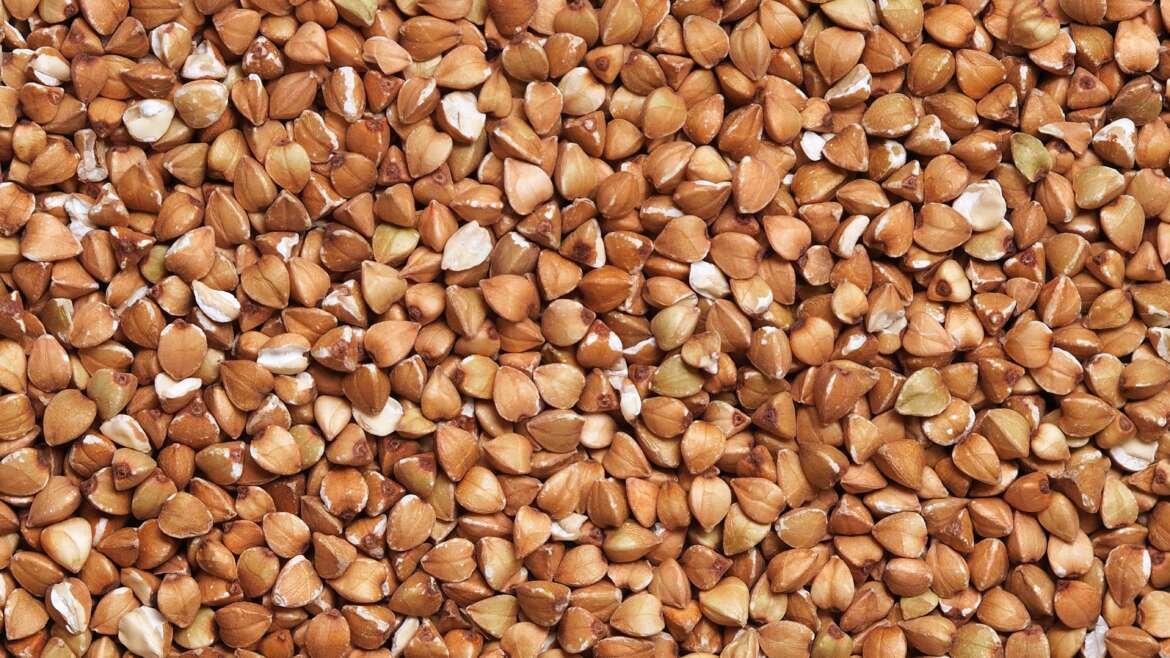Buckwheat has been deemed a superfood due to its manifold health advantages. Despite its name, buckwheat is not a grain but rather a seed. The surge in popularity of this food item can be attributed to its extensive health benefits and significant nutritional value. The consumption of this time-honored sustenance has been prevalent in numerous societies for an extended period, and it is currently acknowledged as a superfood due to its exceptional amalgamation of vital nutrients.


This article aims to explore the potential health benefits of incorporating buckwheat into one’s diet, with the intention of persuading readers to consider its inclusion. The present discourse pertains to the subject of protein of superior quality. Buckwheat is a favorable alternative for individuals adhering to a vegetarian or vegan diet due to its high protein content. This particular food item comprises the complete set of nine indispensable amino acids, among which is lysine, an amino acid that is frequently deficient in other types of grains.
The consumption of protein is crucial for the development of muscles, repair of tissues, and maintenance of general well-being. Buckwheat is a valuable source of complete protein that can aid in fulfilling these requirements. Fiber plays a crucial role in maintaining optimal digestive health and facilitating regular bowel movements. Buckwheat is considered a valuable dietary component due to its high fiber content, which is known to facilitate the digestive process, prevent constipation, and induce satiety.
The incorporation of buckwheat into one’s diet has been shown to have potential benefits in the regulation of blood glucose levels, reduction of cholesterol levels, and facilitation of weight management. Buckwheat is a nutrient-dense food source, containing a plethora of essential vitamins and minerals. The substance in question comprises a group of B vitamins, namely niacin, thiamin, riboflavin, and folate. These vitamins are crucial for the generation of energy and the preservation of optimal cognitive performance. Furthermore, buckwheat is a noteworthy mineral source, containing essential elements such as magnesium, manganese, phosphorus, and copper, which are crucial for maintaining bone health, metabolic processes, and antioxidant defenses.
Buckwheat is a highly recommended gluten-free substitute for conventional grains, particularly for those with celiac disease or gluten sensitivity. This food item is inherently devoid of gluten and can be incorporated into a diverse range of culinary preparations, such as pancakes, porridge, and baked items. Buckwheat flour, derived from the seed, can serve as a viable replacement for wheat flour in a variety of culinary applications.
Rich in Antioxidants: Buckwheat is packed with powerful antioxidants, including rutin, quercetin, and phenolic acids. These compounds help protect the body against oxidative stress and reduce inflammation. Antioxidants play a crucial role in maintaining overall health and reducing the risk of chronic diseases, such as heart disease and cancer.
Supports Heart Health: The combination of fiber, antioxidants, and essential minerals found in buckwheat makes it a heart-healthy food. Studies have shown that regular consumption of buckwheat may help reduce LDL cholesterol levels, lower blood pressure, and improve blood circulation. These benefits contribute to a healthier cardiovascular system and a reduced risk of heart disease.
May Aid in Blood Sugar Control: Buckwheat has a low glycemic index, which means it releases glucose into the bloodstream slowly. This characteristic makes it suitable for individuals with diabetes or those looking to manage their blood sugar levels. Buckwheat consumption has been associated with improved blood sugar control and insulin sensitivity.
Incorporating Buckwheat into Your Diet: Now that you’re aware of the impressive nutritional benefits of buckwheat, you might be wondering how to include it in your diet. Here are a few simple ways to enjoy buckwheat: Cook buckwheat groats as a delicious side dish or base for salads. Use buckwheat flour to make gluten-free pancakes, bread, or muffins.
Try soba noodles, which are made from buckwheat, in stir-fries or cold noodle salads. Enjoy buckwheat porridge topped with fresh fruits and nuts for a nutritious breakfast.
Conclusion: Buckwheat is a versatile and highly nutritious seed that offers a range of health benefits. It is an excellent source of protein, fiber, vitamins, minerals, and antioxidants. Incorporating buckwheat into your diet can support heart health, aid in blood sugar control, improve digestion, and provide essential nutrients. Whether you’re looking for a gluten-free alternative or simply want to boost the nutritional value of your meals, buckwheat is a fantastic addition to any diet. Embrace this ancient superfood and enjoy its many benefits for your overall health and well-being.


Add Comment